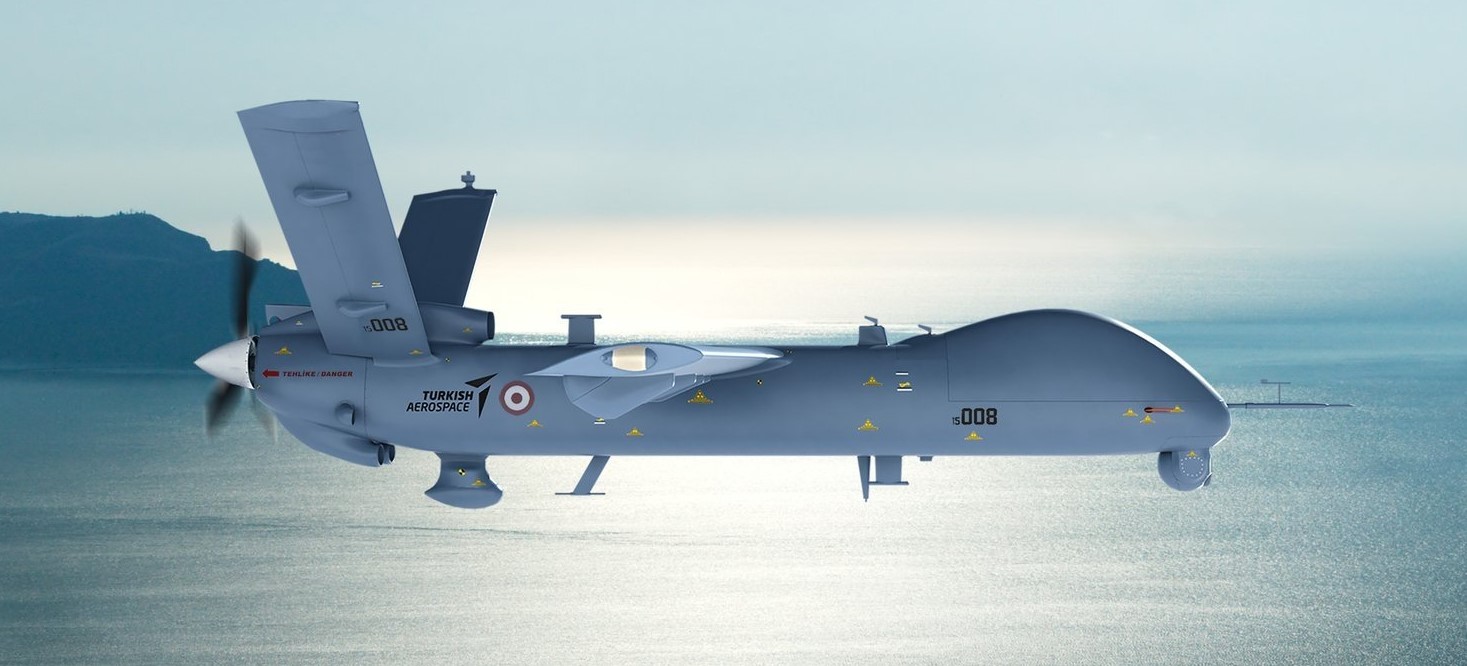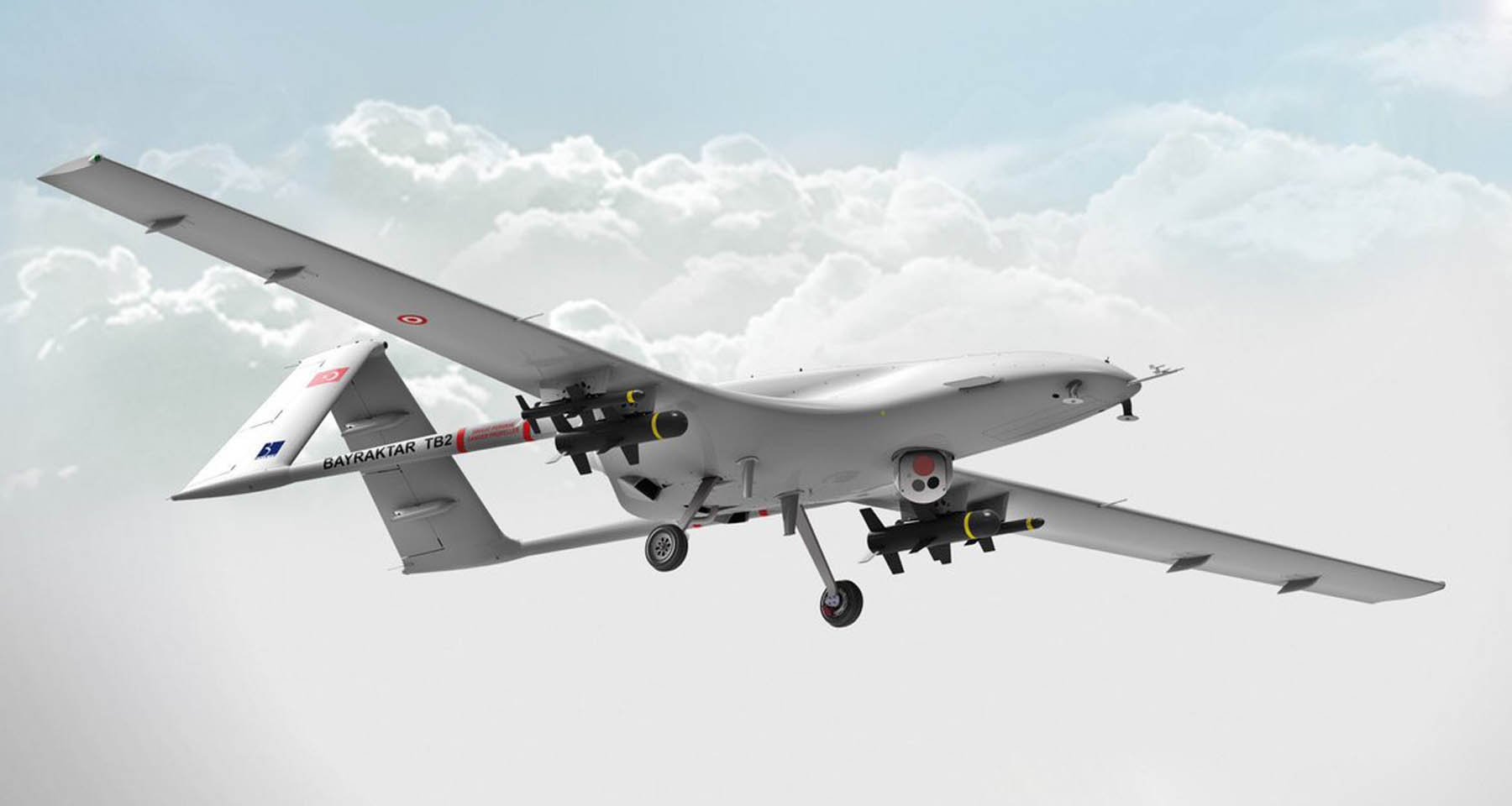Turkey, an emerging drone superpower, has joined hands with South Asian rivals, India and Pakistan, to further consolidate its position as a leading unmanned aerial vehicle (UAV) maker.
F-22 Slayer: Russia OKs Export Of S-500 Missiles That Can ‘Shoot-Down’ Stealthy, Hypersonic Fighter Jets
Turkey is rapidly developing armed drones of various sizes and ranges and scouting for new customers. However, it is interesting to see how Ankara will play a balancing act between the two bitter rivals.
Indian Imprint On Turkish Firm
At the International Defense Industry Fair (IDEF 2021), a four-day event that took place from August 17 onwards in Istanbul, India’s DCM Shriram Industries inked an agreement with Turkish UAV producer, Zyrone Dynamics.
The deal worth $1 million has put Shriram Industries’ share in Zyrone Dynamics at 30%. The latter, which was established to serve as an international firm to draw foreign investments into Turkey, had displayed two new UAVs with the highest-flying speed in their class.

Murat Kanber, the co-founder of Zyrone Dynamics, told Anadolu Agency that this partnership has not only gotten the firm a big investment, but also a huge sales channel. He emphasized that both sides expect the creation of civilian goods, especially for the transportation of cargo.
DCM representative on the other hand, said that the partnership is also about creating a global UAV company. While the Indian company will gain tech support from Zyrone, both parties will also support each other in marketing the products in India and the rest of the world, enlarging the market size of Turkey’s state-of-the-art drones.
Pakistan’s Ties With TAI
However, Indians aren’t the only partners that Turkey has found in South Asia.
Pakistan’s National Engineering and Science Commission (NESCOM) signed a deal with Turkey’s main aerospace producer, Turkish Aerospace Industries (TAI), to manufacture components for Medium Altitude, Long Endurance (MALE) combat drone, Anka.
This drone can stay in the air for 24 hours or longer and can carry up to 250kgs of sensors or weapons like lightweight air-to-surface missiles. Anka is currently in use for surveillance and attack missions by the Turkish Armed Forces (TSK), the Gendarmerie General Command (a Turkish law enforcement agency) and the National Intelligence Organization (MIT).

Turkey earlier had a deal with another Pakistani company, the Pakistan Aeronautical Complex at Kamra, that handed over the first batch of parts for the Anka in 2013. Pakistan’s Navy was also negotiating to buy a variant of Anka, according to reports by media outlet Quwa in 2018.
Under the present contract, both TAI and NESCOM will be jointly responsible for employment, technology, and resource transfer under the scope of the agreement. This contract will also help expand the markets for Turkish drones.
TAI General Manager Temel Kotil told Anadolu Agency, “The contract we made with Pakistan within the scope of our Anka UAV systems will provide significant gains to the UAV industry. This acquisition, especially with Pakistan’s National Engineering and Science Commission, will strengthen our UAVs.”
Turkey: A Drone Tech Hotspot
Turkish drone giant Baykar is in talks with at least 10 countries for its TB2 (Tactical Block 2) UCAV, Selcuk Bayraktar, the company’s Chief Technical Officer, said recently. The names of potential customers were not mentioned, but experts speculate that Pakistan could be one of its customers.
Turkey’s rise as a drone-manufacturing superpower has been in tandem with its growing self-sufficiency in terms of making military equipment. Turkey has faced multiple embargoes and sanctions in the past. It has propelled the nation to produce its own defense products and lower dependence on foreign powers to meet this demand.

The program was further pushed ahead when Turkey was excluded from the next-generation F-35 stealth fighter jet program by the US following its S-400 deal with Russia.
Since then, the country has been indigenously creating unique defense products, some of which are battle-tested and many of which have received attention and praise from experts. A number of Turkey’s advanced weapons, especially drones, were displayed at the IDEF 2021.
The most attractive of these weapons are the class of unmanned systems that Turkey’s top companies such as TAI and Baykar, along with others, specialize in. The vertical takeoff and landing (VTOL) UAV- Çağatay developed by Uavera, Katmerciler’s Remote-Controlled Weapon Platform (UKAP), and the FNSS’ Gölge Süvari (Shadow Rider) unmanned ground vehicle (UGV) concept were among the many unmanned weapons on display. Havelsan also put on its “digital troops” display that showed a combination of UGVs and UAVs.
Turkish drones had played a major role in Syria, Libya and the Nagorno-Karabakh conflicts. The US and Poland have very recently purchased drones from Turkey while Saudi Arabia has shown considerable interest in its UAVs. In 2020, Tunisia became the first buyer of Turkey’s Anka drone.
The country is for sure the global hotspot for designing, manufacturing, and exporting drones, and perhaps other types of weapons too. With both India and Pakistan joining hands with the country, Turkey is certainly looking to make inroads in South Asia.
— Written by Shreya Mundhra/EurAsian Times Desk




